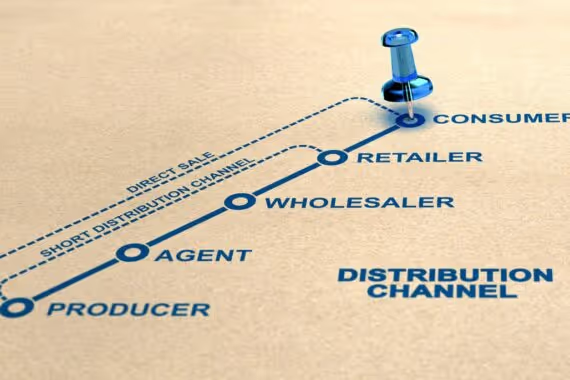Client Alert: U.S. Department of the Treasury Targets Iran-Affiliated Groups in Iraq

The U.S. government and allies last week began a crackdown on Iraqi organizations and nationals with ties to Iran’s Islamic Revolutionary Guard Corps (“IRGC”) Qods Force (“IRGC-QF”) and its proxy groups throughout Iran and parts of the Middle East. This action was brought forward by the U.S. Department of the Treasury’s Office of Foreign Assets Control (OFAC) and the Department’s Financial Crimes Enforcement Network (FinCEN), both of which are utilizing their respective resources to protect the Iraqi financial system from exploitation, and by extension prevent the funding of Iran-backed terrorist groups.
In Summary:
- Iraq has been a crucial point for the diversion of illegitimate funds, weapons and other resources to Iran and its proxies, rendering its financial system prone to exploitation for illicit activities.
- OFAC has put forth a swath of new designations on Iraqi entities and individuals closely involved with the IRGC and its proxy groups.
- FinCEN has proposed rulemaking to cut off an Iraqi bank completely from the U.S. financial system due to money laundering and funding ties with the IRGC and its proxy groups
- OFAC has sanctioned various individuals including Hossein Moanes al-Ibudi, Riyad Ali Hussein al-Azzawi, and Awqad Muhsin Faraj al-Hamidawi for ties to Iran-backed terrorist groups such as Kata’ib Hizballah.
- Although Iraq is not under comprehensive U.S. sanctions, the increasing numbers of designationsin the country complicates U.S. enforcement and increases the risks of U.S. entities doing business in the area, underscoring the need for vigilance in compliance approach.
Background
Iraq has for years been the center of various money laundering, weapons transportation, and export diversion schemes to bring funding to Iran and affiliated terrorist groups in contravention of U.S. sanctions. Greater enforcement in this area has been aimed at reducing the amount of funding that Iran and the IRGC transfers to and through Iraq, as it is diverted from the Iraqi financial system and its citizens.
On January 22, 2024, many Iraqi businesses, organizations, and individual persons linked to the IRGC,
as well as other foreign terrorist organizations with links to Iran – such as Kata’ib Hizballah – were designated by OFAC. Some entities, like Al-Huda Bank in Iraq have become subjects of proposed rulemakings by FinCen. The consequences of such designations and proposed rulemakings have ramifications beyond the Iraqi entities directly targeted.
Notably, designation on OFAC List of Specially Designated Nationals and Blocked Persons (the “SDN List”) effectively blocks the assets of those designated that are in the United States or otherwise come into possession of U.S. persons as defined in the regulations and prohibits U.S. persons from dealing with such organizations or individuals, even companies owned as little as 50% by an SDN entity.
Al-Huda Bank, an Iraqi financial institution with alleged ties to the IRGC, is organization alleged to be involved in terrorist financing and money laundering. Much of Al-Huda’s are reported to involve diverting funds intended to stabilize the Iraqi economy to Iran for use to incite violence in the region and fund various IRGC proxy groups. Al-Huda’s owner, Hamad al-Moussawi, has also been sanctioned by OFAC under the Iranian Financial Sanction Regulations, 31 CFR Part 561 (the “IFSR”) and as a Specially Designated Global Terrorist (SDGT), and the bank is the subject of a new rulemaking proposal by FinCEN to remove all associated accounts from U.S. financial institutions and agencies, essentially ceasing all ties between the bank and the U.S. financial sector.
Similarly, Iraqi airline Fly Baghdad has according to a Department of the Treasury press release engaged in active support for the IRGC and Kata’ib Hizballah by allegedly transporting weapons, money, and personnel to members and proxies throughout the region. OFAC has recently designated both Fly Baghdad and its CEO, Basheer Abdulkadhim Alwan al-Shabbani, as SDGTs on the SDN List.
Various individuals directly involved in the networks of organizations such as Kata’ib Hizballah have been
sanctioned as well, but notably for their criminal activity related to attacks against regional U.S. personnel since the ongoing conflict between Israel and Hamas in Gaza and Iran’s targeting of political dissidents and opponents. The U.S., U.K., and other allies have aligned to designate some of the persons involved.
Although Iraq is not under comprehensive sanctions, there are over presently over 150 persons in that country on OFAC’s SDN List, and likely more will be added in the future. The U.S. has worked with the Iraqi government in the past to help prevent terrorists and other malicious actors from accessing financial resources within the country and in the international system. In March 2020, OFAC implemented a swath of designations on front companies and other entities in Iraq and Iran with ties to the IRGC-QF, with over 20 businesses and individuals designated.
Earlier last week, Under Secretary of the Treasury for Terrorism and Financial Intelligence Brian E.
Nelson traveled to Iraq to continue the dialogue with Iraqi government officials about solutions to the persistent illicit activities occurring within the country’s financial sector. The communication between the two governments has focused on reforming the compliance policies of Iraqi banks to correspond with international standards, as well as relying on further sanctioning by the U.S., such as those seen in the past week.
U.S. sanctions compliance risks and exposure are not new to the Middle East and North Africa (MENA) region. However, actions such as this week’s further underscore the increasing complexity of the sanctions framework and expanding multi-disciplinary nature of U.S. enforcement, seen here by multiple federal agencies addressing the same issue. Companies doing business in the region, including outside of Iraq, should be vigilant towards these risks and further developments in the coming months. Proactive measures can include heightened Know Your Customer (KYC) standards and even stronger scrutiny by financial institutions of inbound and outbound payments.
For more information, contact Farhad R. Alavi (Partner, Washington) at falavi@akrivislaw.com and +1.202.686.4859.
Special thanks to our Student Associate Samantha Hoover for her help on this Client Alert.
This Client Alert is intended solely for informational purposes and should in no way be construed as legal advice. If you have any questions or are unclear on any of the subject matters addressed or discussed in this Client Alert, please consult a licensed legal professional.

.avif)







